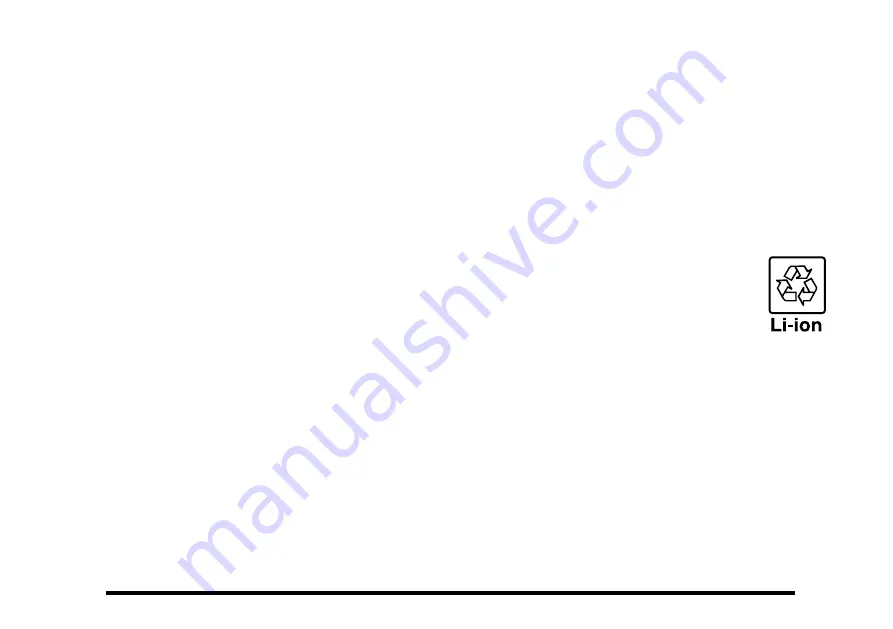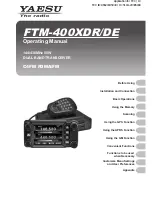
17
z
Battery Safety
Battery packs for your transceiver contain Li-ion bat-
teries. This type of battery stores a charge powerful
enough to be dangerous if misused or abused, es-
pecially when removed from the transceiver. Please
observe the following precautions:
DO NOT SHORT BATTERY PACk TERMINALS
:
Shorting the terminals that power the transceiver can
cause sparks, severe overheating, burns, and battery
cell damage. If the short is of sufficient duration, it is
possible to melt battery components. Do not place a
loose battery pack on or near metal surfaces or objects
such as paper clips, keys, tools, etc. When the battery
pack is installed on the transceiver, the terminals that
transfer current to the transceiver are not exposed. The
terminals that are exposed on the battery pack when it
is mounted on the transceiver are charging terminals
only and do not constitute a hazard.
DO NOT INCINERATE
: Do not dispose of any battery
in a fire or incinerator. The heat of fire may cause bat
-
tery cells to explode and/or release dangerous gases.
z
Battery Maintenance
For safe and proper battery use, please observe the following:
Battery packs should be charged only in non-
hazardous environments.
Do not attempt charge a pack with the incorrect
charger, as this can damage or shorten the life
of the pack.
Keep the battery contacts clean.
z
Battery Storage
When a battery pack is not used for a long time, please
remove it from the transceiver. Also, while in storage,
the charge will drain slightly over time and the battery
should be recharged 50% each six months.
z
Battery Recycling
DO NOT PLACE USED BATTERIES IN YOUR
REGULAR TRASH!
LI-ION BATTERIES MUST BE COLLECTED, RE-
CYCLED OR DISPOSED OF IN AN ENVIRONMEN-
TALLY SOUND MANNER.
The incineration, land filling or mixing of
Li-ion batteries with the municipal solid
waste stream is PROHIBITED BY LAW
in most areas.
Return batteries to an approved Li-ion
battery recycler. This may be where you purchased
the battery.
Contact your local waste management officials for
other information regarding the environmentally sound
collection, recycling and disposal of Li-ion batteries.
















































